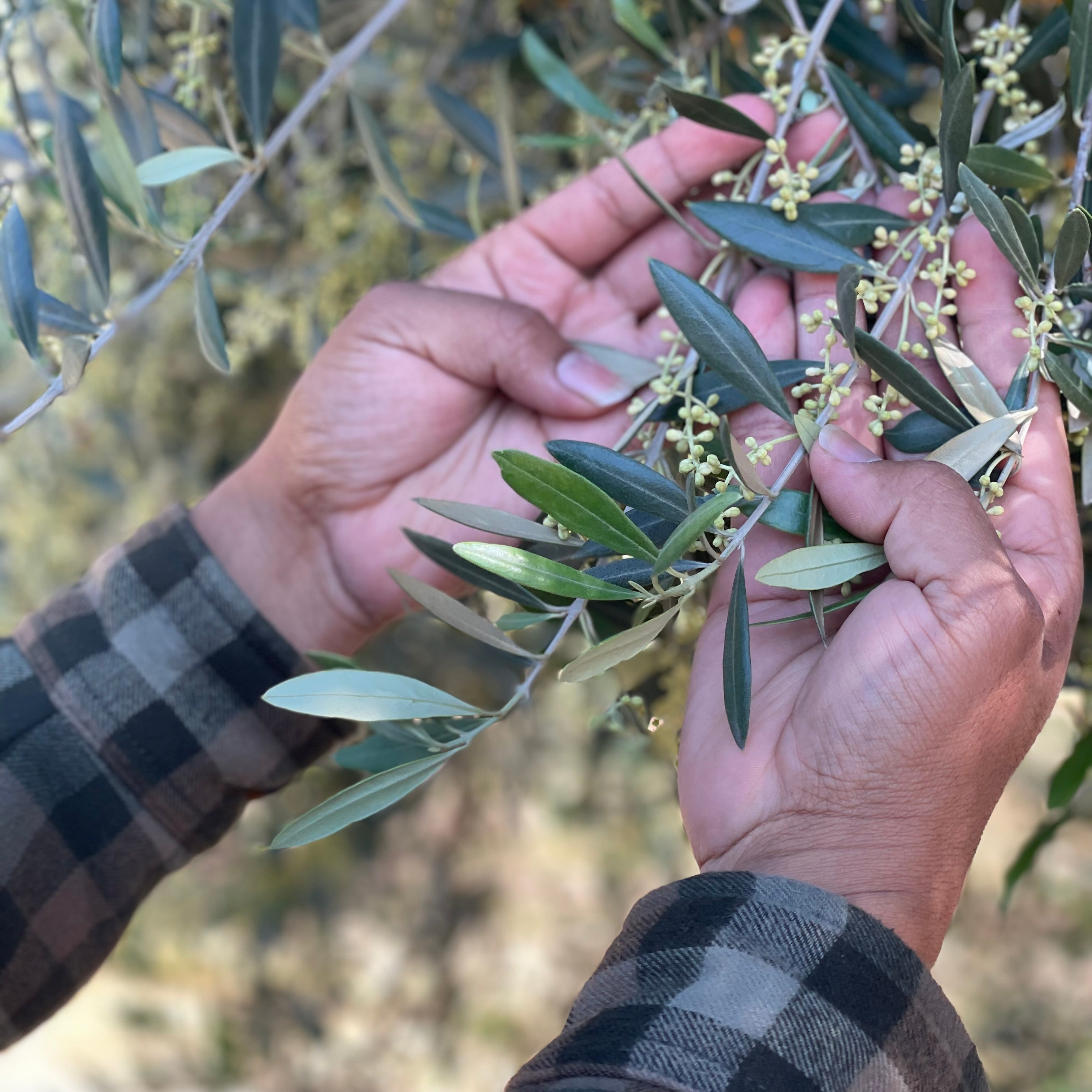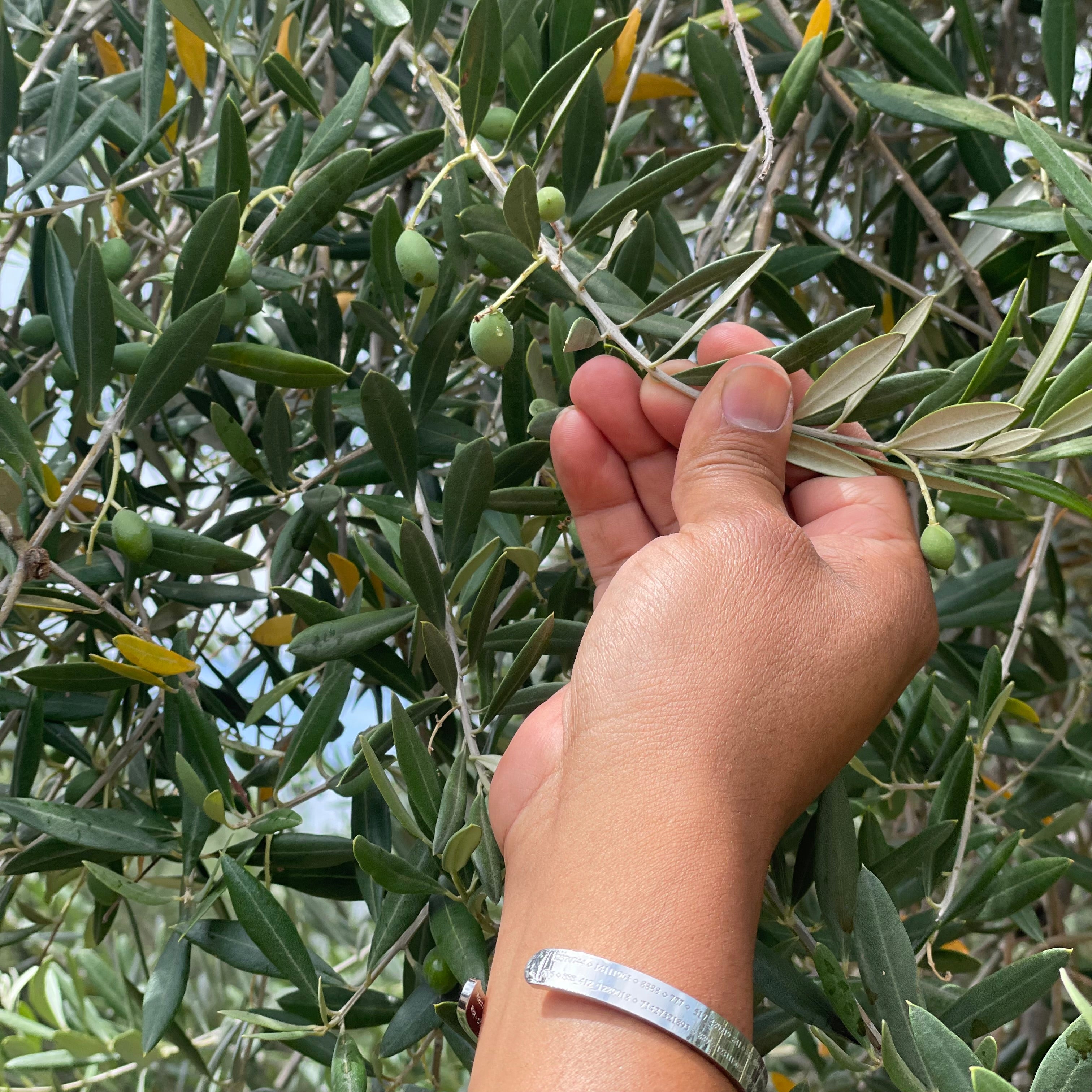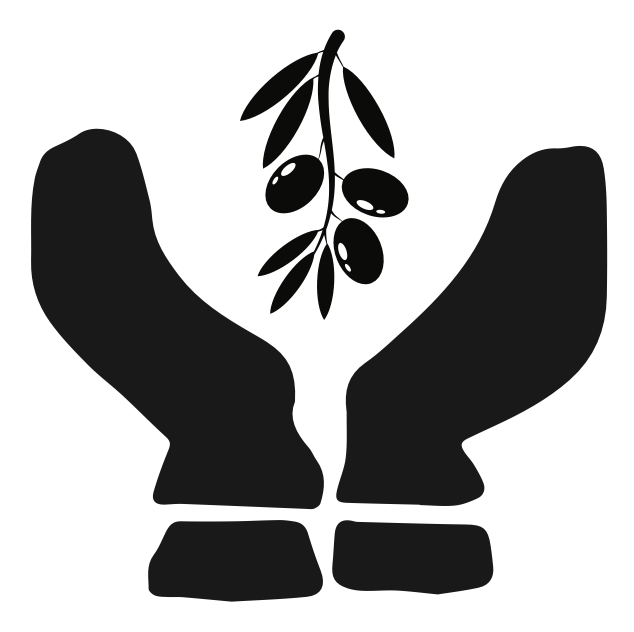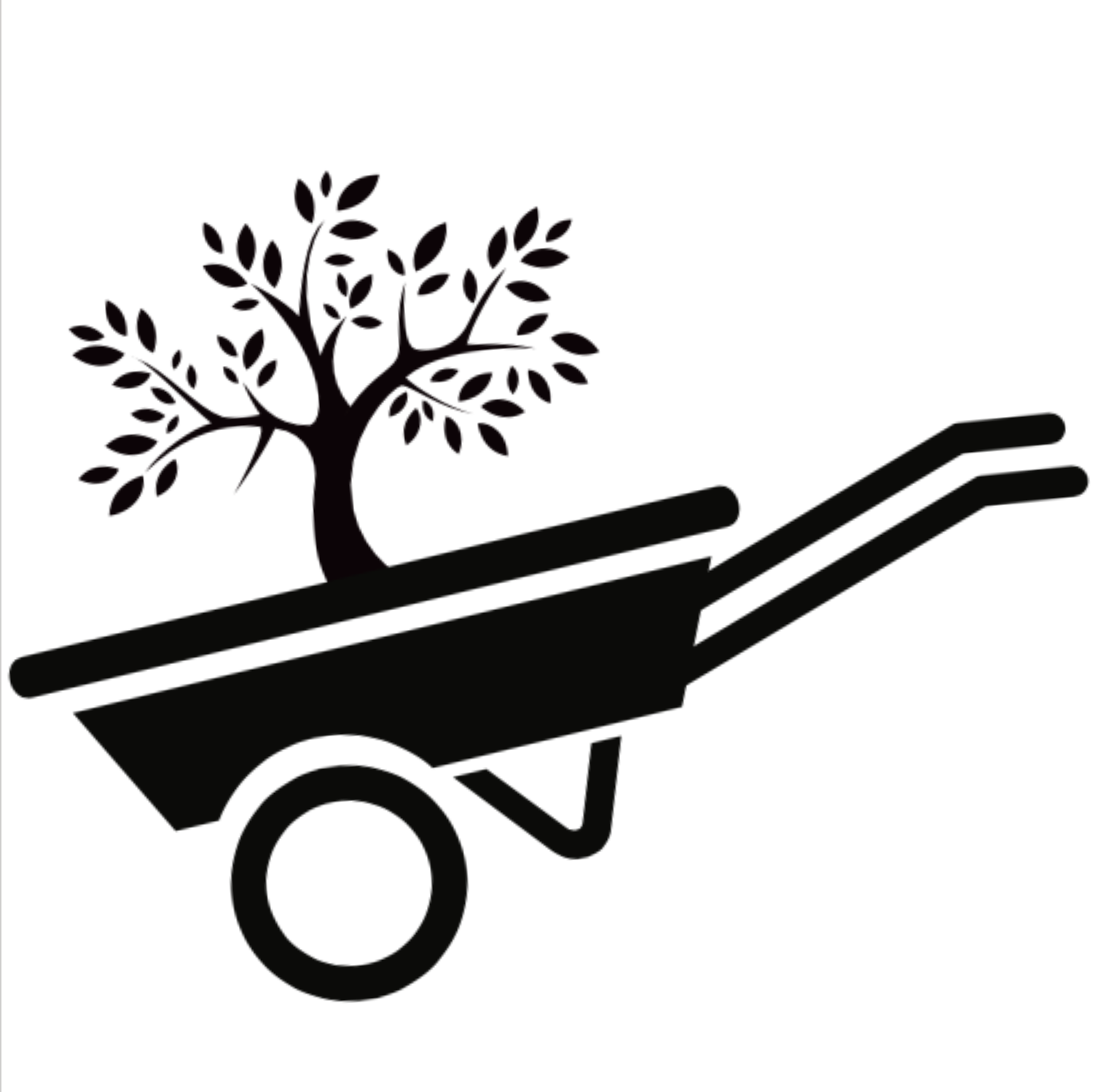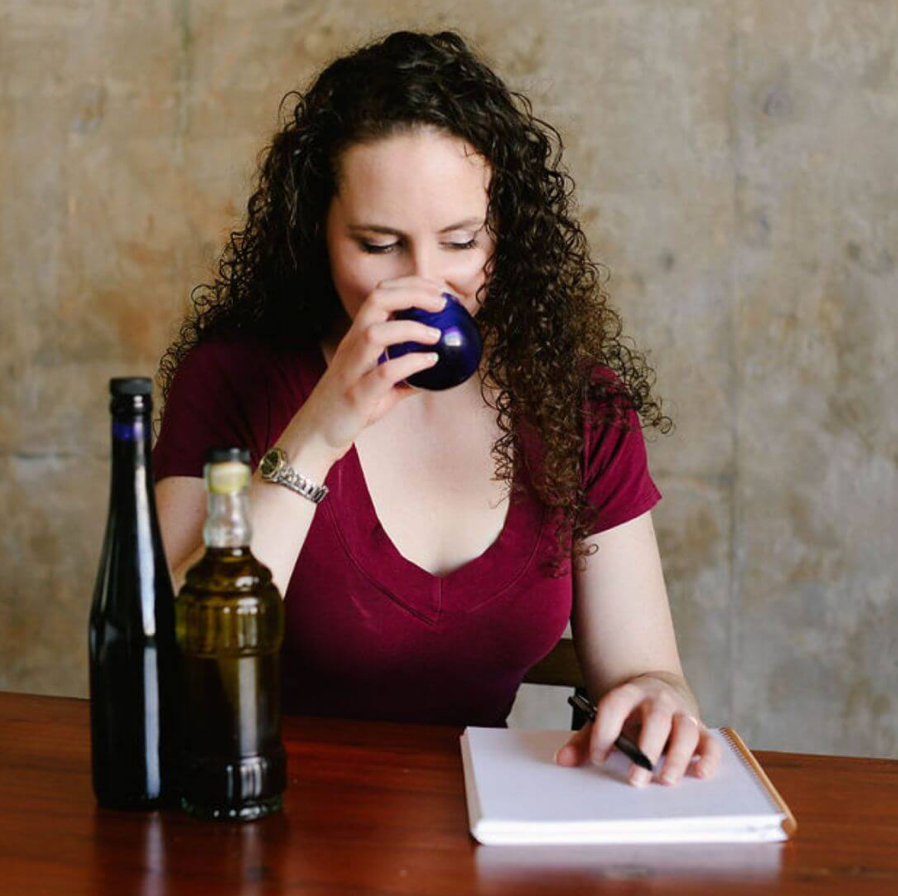
How to Taste Olive Oil: taste early, taste often, and pay attention
I've invited colleague, Emily Lycopolus, to share her personal experience tasting olive oil with all of you. I first met her at an olive oil conference in 2018 and offered her cookbooks for sale in our Tasting Room when it was still operating. I was also fortunate to employ her husband as one of our store managers, and we've stayed in touch all these years. Emily is our authorized importer / distributor in Canada for of the professional sensory supplies we produce.
The Evocative Allure of Aroma
Have you ever walked into a room and caught a whiff hanging in the air and were instantly transported to another place or time? I find that a simmering pot on a stove instantly transports me to my grandmother’s little kitchen. My fascination with olive oil began with a similar experience. I had the pleasure of enjoying extremely fresh, high-quality olive oil on my husband's family olive grove in Marche, Italy. The challenge, once I moved back to North America, was that I could not find anything at the grocery store that evoked the same scent, flavour, or memory. My curiosity piqued, I dove in and one day, found it—a chewy, rich, and creamy Nocellara that tasted like fresh green almonds, artichoke, and black pepper. Surprisingly, it was at a specialty store in Halifax, Nova Scotia. I couldn’t get enough. How the flavours lingered in my mouth, how the flavours layered and changed from moment to moment and just when I thought I experienced all the oil had to offer, more flavours would arrive. I love tasting olive oil, the science and specificity of it I find fascinating. It is also a very abstract process and this combination of art and science suits me perfectly.
In the beginning, I started to go into stores and ask if they had samples, and if could we taste them together. Later I found an olive oil tasting room with passionate owners and tasted with them. I started looking for classes and olive oil courses, wanting to learn as much as I could. I couldn’t believe how the flavours differed and how my everyday meals tasted so different, depending on which oil I used. Friends started asking for my secret ingredient!
What Happens When We Taste
Olive oil tasting is such a unique process. When tasting, the first thing I think about is my environment. Our sense of smell and taste is not like our other senses. Society doesn’t value scent as it does other senses, yet it connects us to the world around us in a very detailed and memorable way. Our world is filled with molecules that evoke scent, and our bodies are constantly taking in stimuli. When our olfactory receptors are triggered, we don’t recognize the molecule that triggered it, however, our brain recognizes a molecule and sends a signal to the brain to process and create a memory. This processing pathway is unique as the olfactory center in our brain is very close to our emotional cortex, this is why scent can be so emotive. All things give off a scent signature, that unique blend of molecules that can be perceived creates a Rolodex of memories, sensations, and experiences.
So, when tasting, my hair is up, my hands are washed with unscented hand soap, and my clothes are clean, as I want as neutral a scent environment as I can create. I do my best to use the IOC Cobalt Blue glasses, their shape and dimension are specifically designed to concentrate the aromas and showcase the flavors (good or otherwise) in the olive oil at their best. The glasses also create a consistency when tasting. We can’t put on noise-cancelling earphones or use a telescope to enhance our sense of smell. The only way we can improve is through conscious thought and consistency in practice. Taste early, taste often, and pay attention. This is the best way to increase your awareness, sensitivity, and recall, cementing those memories.
Why Different Olive Oils Taste Different
Every olive oil has its unique characteristics and flavour profile. These flavours are not added to the oil but are created through enzymatic reactions during the milling process. Due to this reality, everything affects the flavour of the final oil, and even though consistency can be found in terroir and cultivars, other factors like weather, harvest timing, and milling can create wildly different final products. There is much more possible diversity between the same cultivar in olive oil than in wine for example. As tasters, we do our best not to worry about identifying the cultivar, but focus on the flavours found in the oil, defects first and foremost and then the positive attributes. Every defective flavour found in an oil points back to agriculture, climate, the mill, or how a finished oil is handled or stored. It’s so fascinating to trace back and figure out how a flavour arrived in the oil. When tasting in a group, the conversations are always insightful, curious and open. Does your lemon taste like my lemon? No one can know the answer. Each flavour is connected to a personal memory, so discussing the tasting notes is a beautiful process.
I often find students just want to know what a good oil is; "how do I know if it’s rancid or not?" is a common question. Quality identification at the consumer level is key. While teaching, I always include at least one defective oil, as the comparison between fresh and not fresh is significant. When I first started I thought that fusty (fermented) was what oil was supposed to taste like because it was all that I had experienced in the past, and I know many others who have experienced the same. Fresh authentic extra virgin olive oil is not easy to come by at the grocery store. It’s another reason I do my best to post reviews and my experience with an oil to offer some insight to someone who hasn’t tasted it yet.
How to Find Fresh and Authentic EVOO
Tasting before purchasing is a great advantage. I encourage everyone to find a tasting room or olive oil bar or go to the producer if you are able and taste before you buy. This gives you the best experience. You can understand the fruitiness, how bright and bitter the oil is, how pungent and peppery, or mild and creamy. I love to taste alongside the shop owner or producer, tasting with someone with experience is the best place to start. Ask questions, and be curious, I promise they will love you for it! Because they know the oils so well and likely have cooked with them, they will be able to offer many ideas on best use and pairing it with food and meals. American Olive Farmer only offers extra virgin olive oil that has passed the rigorous annual chemical and sensorial requirements as regulated by the State of California, and Liz, an experienced taster with many years of international experience, carefully assesses and writes thorough tasting notes, the next best thing.
Since the pandemic, virtual tastings have become commonplace as we’ve all moved to fully digital environments. I send a tasting kit with samples, and a tasting glass and we taste together. Since we’re at home, students can wash their glasses between tastes while we eat a bite of apple and take a swig of sparkling water. The experience is almost the same as sitting across a table, talking over the oils and our experience of each oil, their unique qualities, how they differ from other oils we’ve tasted and how best to integrate them into everyday cuisine. Learning the olives story from branch to bottle opens the deeper meaning behind what is in a bottle, and learning how to read what’s on the label helps everyone find quality at the store. It’s a true pleasure to open up this world that transformed my life, and my direction to so many who love, enjoy and want to deeply know the ingredients they use every day.
____________________
Olive Oil Sommelier, educator, and author of 8 cookbooks, Emily Lycopolus is the Olive Oil Critic. With a degree in Life Science from Queen’s University, her love of science and discovery has blended with her deep love of food and flavour. Along with an MA in Cultural Anthropology, her kitchen is also a lab for discovery and learning. After being introduced to olive oil in her husband's family olive grove, her life has been dedicated to the ingredient since. Emily’s expert palate can be found sharing her passion with consumers, olive oil producers, gourmet and grocery retailers, as well as judging at International Olive Oil competitions. Calling Victoria, Canada home, Emily hosts private workshops, cooking classes, and guided tastings, educating retail and culinary professionals alike all about olive oil.
Emily offers virtual tastings using olive oil from American Olive Farmer and other producers from around the world. You can view her current course schedule via this external link.

